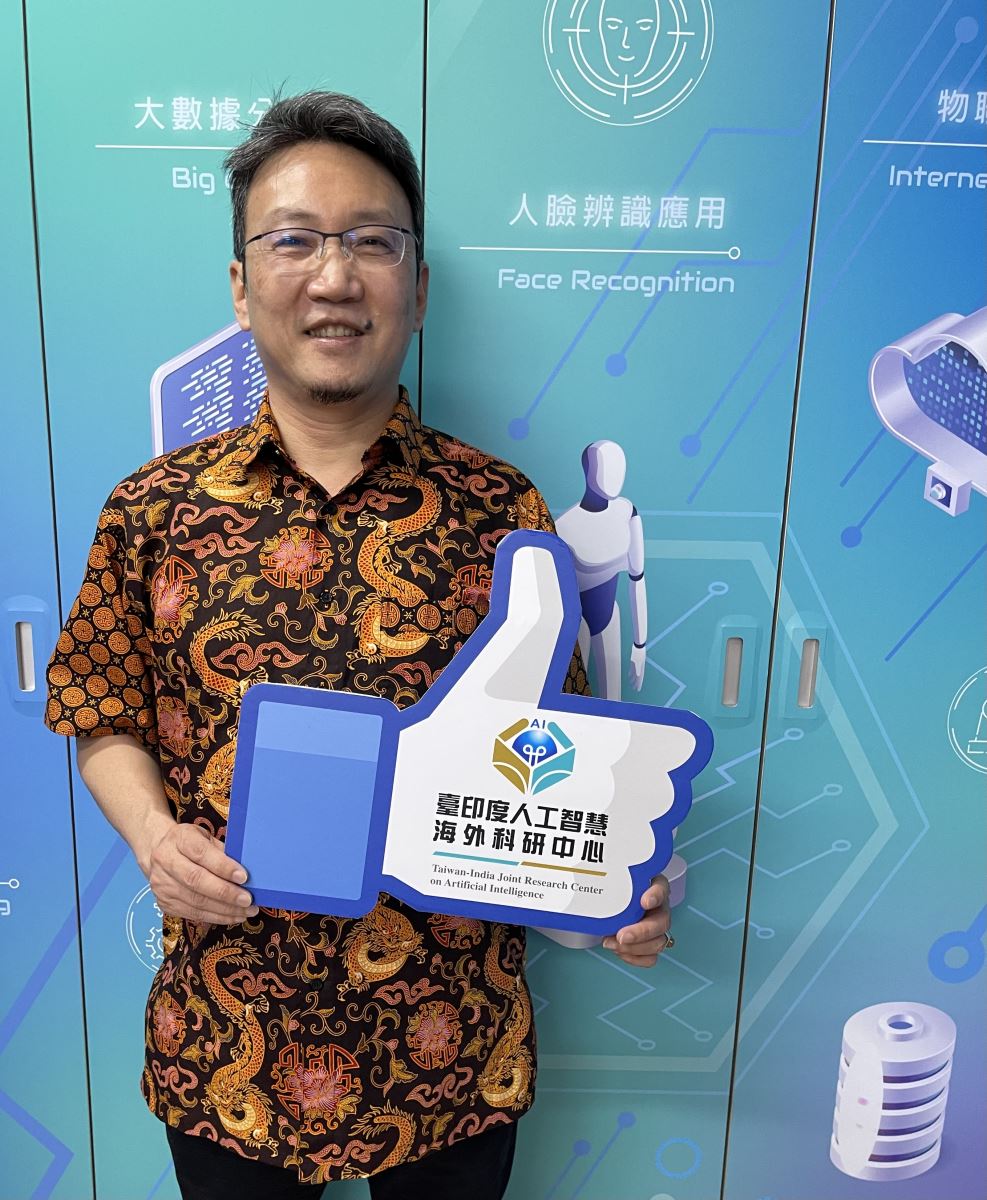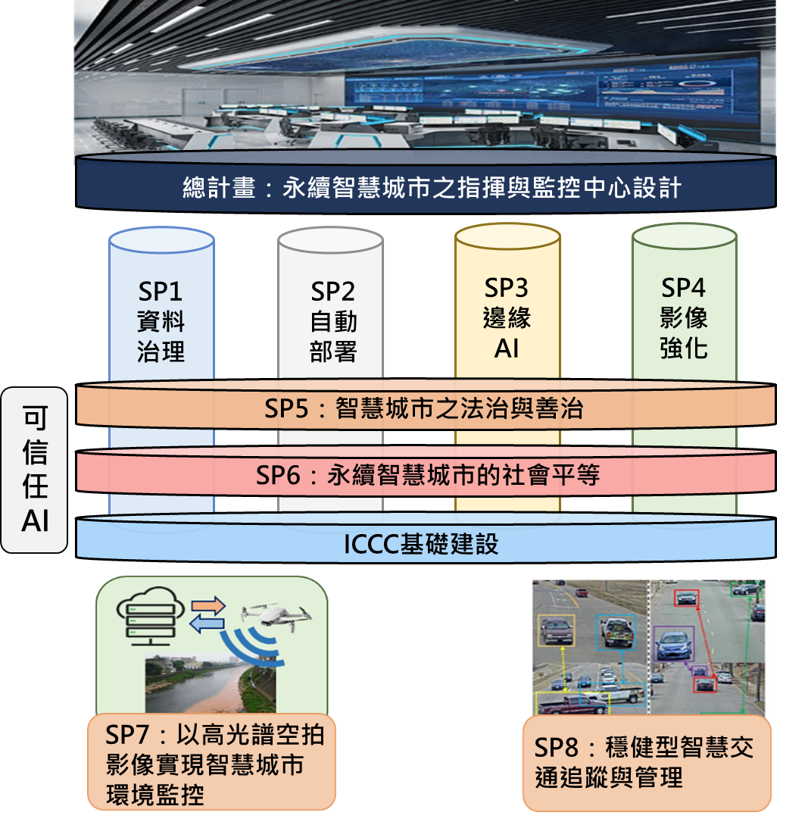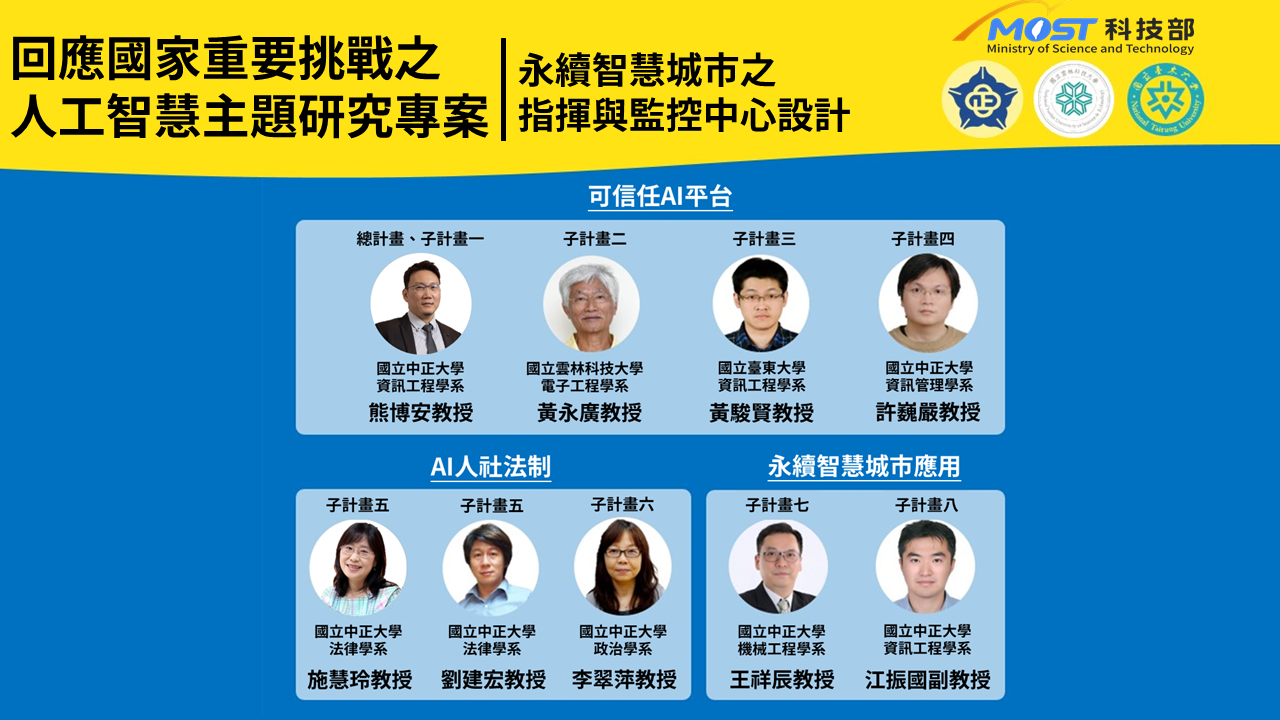The Director's Notes:
.jpg) It was my fourth interview with Prof. Pao-Ann Hsiung from the Department of Computer Science and Information Engineering at National Chung Cheng University from 2019 to 2022. The earlier interviews were on-camera, documenting the humorous Prof. Hsiung and his groundbreaking achievements in AI technology. However, in this in-depth one-on-one interview, we talked about Prof. Hsiung's birthplace, India, as well as the development and future of AI. (Photograph Courtesy of Pei-Lin Lin)
It was my fourth interview with Prof. Pao-Ann Hsiung from the Department of Computer Science and Information Engineering at National Chung Cheng University from 2019 to 2022. The earlier interviews were on-camera, documenting the humorous Prof. Hsiung and his groundbreaking achievements in AI technology. However, in this in-depth one-on-one interview, we talked about Prof. Hsiung's birthplace, India, as well as the development and future of AI. (Photograph Courtesy of Pei-Lin Lin)
Pic 1 : Prof. Pao-Ann Hsiung and Director Pei-Lin Lin
National AI Team Led by an India Expert
Speaking without an accent, Prof. Hsiung was actually born and raised in Mumbai, India. At the age of 16, he went to the school for overseas ethnic Chinese in Mumbai to teach English and taught himself Mandarin. After moving to Taiwan with his family at the age of 20, he enrolled in the Department of Mathematics at National Taiwan University and went on to receive a Ph.D. degree in the Department of Electrical Engineering. After that, he has been teaching in the Department of Computer Science and Information Engineering at National Chung Cheng University for 20 years. During that time, he was on secondment to the Intelligence Technology Department in Chiayi City Government as the Director-General for his outstanding research.
Looking back on his journey, Prof. Hsiung said with a smile that he knows India like the back of his hands, such as the well-known traffic problems, environmental dilemmas, and the special view on time and contract. Therefore, as an AI and India expert, he has been trying his best to find opportunities to bridge Taiwan and India.
Prof. Hsiung's eyes shone with expectation as he mentioned that his team was selected for the Ministry of Science and Technology's AI Thematic Research Plan Responding to Major National Challenges. He showed his positive attitude toward the plan for its long-term vision in 2030 that covers the smart city, smart manufacturing, smart service, and smart healthcare, and cherished his role in Taiwan's National AI Team.

Pic 2 : Prof. Pao-Ann Hsiung, Co-Director of the Taiwan-India Joint Research Center on Artificial Intelligence (Photo Courtesy of Pei-Lin Lin)
A Smart and Sustainable City
When it comes to smart cities, Indian Prime Minister Narendra Modi launched the "100 Smart Cities Mission" since he took office, and Taipei is ranked 4th out of 118 cities in the Smart City Index for 2021. To combine India's national policy and Taiwan's strong suits in AI hardware and software, Prof. Hsiung believed that the smart city is a global trend worth following.
Prof. Hsiung drew on Japan's policy to reach Society 5.0 by 2030 with a human-centered vision, emphasizing economic and technological development while addressing social issues, and launching a "super-smart revolution" based on AI, IoT, and quantum computing. In addition, Prof. Hsiung compared these policies with the indicators of the United Nations Sustainable Development Goals (SDGs) for the environment, economy, and society. As a former director of smart technology in the public sector, Prof. Hsiung understands clearly that scientific research can be a double-edged sword, and he knows how to avoid the negative consequences accordingly; now as the Principal Investigator of the Integrated Command Control Centre (ICCC), he works with India to build a cross-university and cross-disciplinary team to promote smart city research projects.

Pic3 : ICCC framework (Courtesy of National Chung Cheng University)
Vision for Humanistic AI
The members of the ICCC project range from National Chung Cheng University, National Yunlin University of Science and Technology, and National Taitung University. In addition, the members of the eight sub-projects come from various fields, including information engineering, information management, electronic engineering, mechanical engineering, law, and political science, creating a cross-discipline team.

Pic 4 : ICCC organization (Courtesy of National Chung Cheng University)
According to Prof. Hsiung, in the past, smart technology was developed solely by scientists, focusing on impressive data and machine learning, such as the ups and downs of the PM2.5 level. But when it comes to sustainability, now we focus on whether people's health has improved? Has a smart city made life more convenient? In addition to the original quantitative research, qualitative research, field interviews, and other social disciplines are needed during the research process. These days, as AI becomes smarter, the more likely it might learn the deviant thoughts and behaviors of humans, ignoring universal values such as fairness and justice. Therefore, laws and regulations are important aspects as well. That is why Prof. Hsiung joined hands with Prof. Tsuey-Ping Lee from the Department of Political Science to compile the regulations and social expectations of AI in 16 countries from the perspective of social sciences.
The eight sub-projects are divided into three major fields: Building "trustworthy AI platforms" that covers information technology, information management, and electronic engineering; emphasizing "humanities, social sciences, and rule of law for AI" from the perspective of politics and law; and focusing on "sustainable smart city applications". During the initial planning, the team has asked the U.S. National Science Foundation (NSF) to provide ideas for sustainable smart cities, which promotes AI optimization and meets public expectations in environmental protection and social equity.
"4C" Alliance for Taiwan-India Industry, Academia, and Government Collaboration
In the Taiwan-India Smart Sustainable Cities Project, it is such a coincidence that the participants, Chiayi, Chung Cheng University, Chandigarh, and Chitkara University, all start with "C", which foraged the "4C" Alliance.
Prof. Hsiung explained the reasons for partnering with Chitkara University were the university's connections with the government, internationalization level, and the willingness to collaborate with different partners. Chitkara University and Taiwan have reached an agreement on establishing the "Office of Smart Sustainable Cities Research" in India and hiring project managers and professors as liaison officers to communicate with the Chandigarh City Government.
To promote the New Southbound Policy, Chung Cheng University established the "Taiwan-India Joint Research Center on Artificial Intelligence" four years ago with the support of MOST, and allied with the Indian Institute of Technology Ropar and Chitkara University. During that time, Taiwan and India have promoted international cooperation in AIoT design and FinTech technologies, including smart face recognition, smart bamboo recognition, precision agriculture, precision marketing, and recommendation systems, all of which had tangible results and laid a solid foundation for the smart city project. In addition, the trust and smooth communication between Prof. Hsiung and his Indian partners benefited the promotion of the project.
The National AI Team has just begun its mission to promote smart sustainable cities; however, given the existing connections with the Indian industry, academia, and government, as well as the access to data on transportation and the environment in India, companies are highly interested in the project. In the future, we hope that the national project will pass on the experience of smart sustainable cities and benefit more cities through commercialization, making sustainability a necessary path to the future.
(1).png)
Pic: Introduction of the columnist, Pei-lin Lin